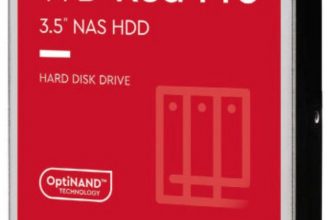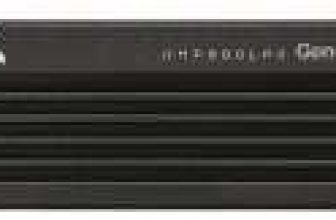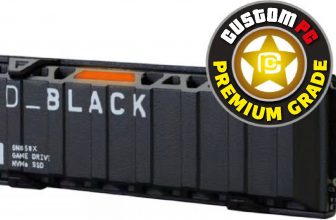ADATA XPG SPECTRIX S40G Review

Our recent M.2 group test in Issue 215 saw some of the cheaper PCI-E 4 offerings such as ADATA’s own S50 Lite offer decent bang for your buck, although in real-world use you’re unlikely to see noticeable benefits by jumping from PCI-E 3 to PCI-E 4 unless you regularly shift multiple terabytes of data around your storage system. As a result, cheaper PCI-E 3 SSDs can still provide excellent performance while saving you some cash or, in the case of the ADATA XPG Spectrix S40G, you can spend a little bit more money and get an RGB-equipped SSD instead.
SPEC
Full capacity
512GB
Formatted capacity
476GB
Heatsink
Yes
NAND
TLC
Controller
Realtek RTS5762
Endurance
640TBW
Warranty
Five years
Yes, you heard us right – this PCI-E 3 SSD has its own RGB lighting array – a feature that’s usually only found in slower 2.5in SATA SSDs. What’s more, the lighting isn’tjust fixed in a cycling rainbow effect – it’s fully controllable on a per-LED basis using ADATA’s software. Whether you want to take advantage of one of this drive’s preset lighting modes, go all-out with the usual rainbow effect or set a specific colour to match the rest of your system’s lighting, the XPG Spectrix S40G is a good match if you like to illuminate as much of your PC’s interior as possible.
The XPG Spectrix S40G also has a small heatsink sandwiched among the RGB paraphernalia and, prior to updating the firmware, its temperatures were reported to be reaching 90°C. However, after we’d updated the firmware, these temperatures fell to below 70° C, so this is well worth doing, especially as ADATA’s software will enable you to install the new firmware in just a couple of clicks.
While many PCI-E 4 SSDs are based on Phison controllers, we see far more variation in the controllers used in 4x PCI-E 3 SSDs, and in this case, the XPG Spectrix S40 G uses a Realtek RTS5762 controller along with Micron triple-level cell (TLC) NAND flash and a portion of single-level cell (SLC) flash reserved for a write cache, which boosts the otherwise slow write speeds associated with TLC memory. Continually writing data to the SSD saw this cache run out once we started writing between 350GB and 400GB, so this is unlikely to be an issue unless you’ll be dropping hundreds of gigabytes onto the drive regularly.
Our 512GB sample has a claimed write speed of 2,400MB/sec while the 1TB can hit 3,000MB/sec, and this was generally borne out in the benchmarks. We recorded a read speed of 3,540MB/sec, which even slightly outstrips the claimed 3,500MB/sec, but sure enough, it sat just short of 2,500MB/sec in our tests, hitting 2,461MB/sec. The 4K random speeds were reasonable, with a singlequeue-depth, single-thread read result of 52MB/sec, and its 190MB/sec 4K write result was noticeably quicker than that of the WD Red SN700 we also reviewed this month (see p32). Meanwhile, the 32-queue-depth performance of 502MB/sec for reads and 724MB/sec for writes are fine, but not outstanding.
Conclusion
Ultimately, you won’t see much real-world difference between most PCI-E 3 and 4 SSDs, especially outside of sequential workloads, and the Spectrix S40G is certainly fast enough for most people’s needs, even if it only uses the PCI-E 3 interface. Price and features are far more important differentiators, and here the ADATA XPG Spectrix S40G keeps pace with most PCI-E 3 SSDs, but throws RGB lighting into the mix for around an extra tenner, although bear in mind the range tops out at 1TB, with no 2TB model available.
The lighting is certainly a gimmick, but it does look great if you like to light up as much of your PC as possible.
ANTONY LEATHER
VERDICT
If you want to light up as much of your PC as possible, the RGB-enabled ADATA XPG Spectrix S40G offers great lighting without bumping up the price too much.
OVERALL SCORE
84 %
SPLASH OF LIGHT
+ Fantastic RGB lighting
+ Reasonable price
+ Simple software
SPLASH OF MUD
– No 2TB model
– PCI-E 4 drives are faster







